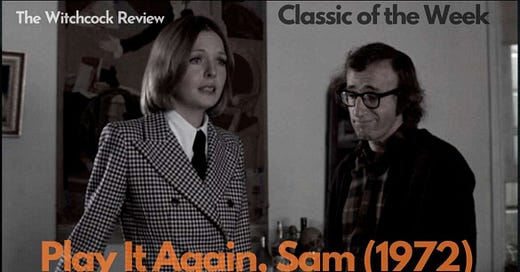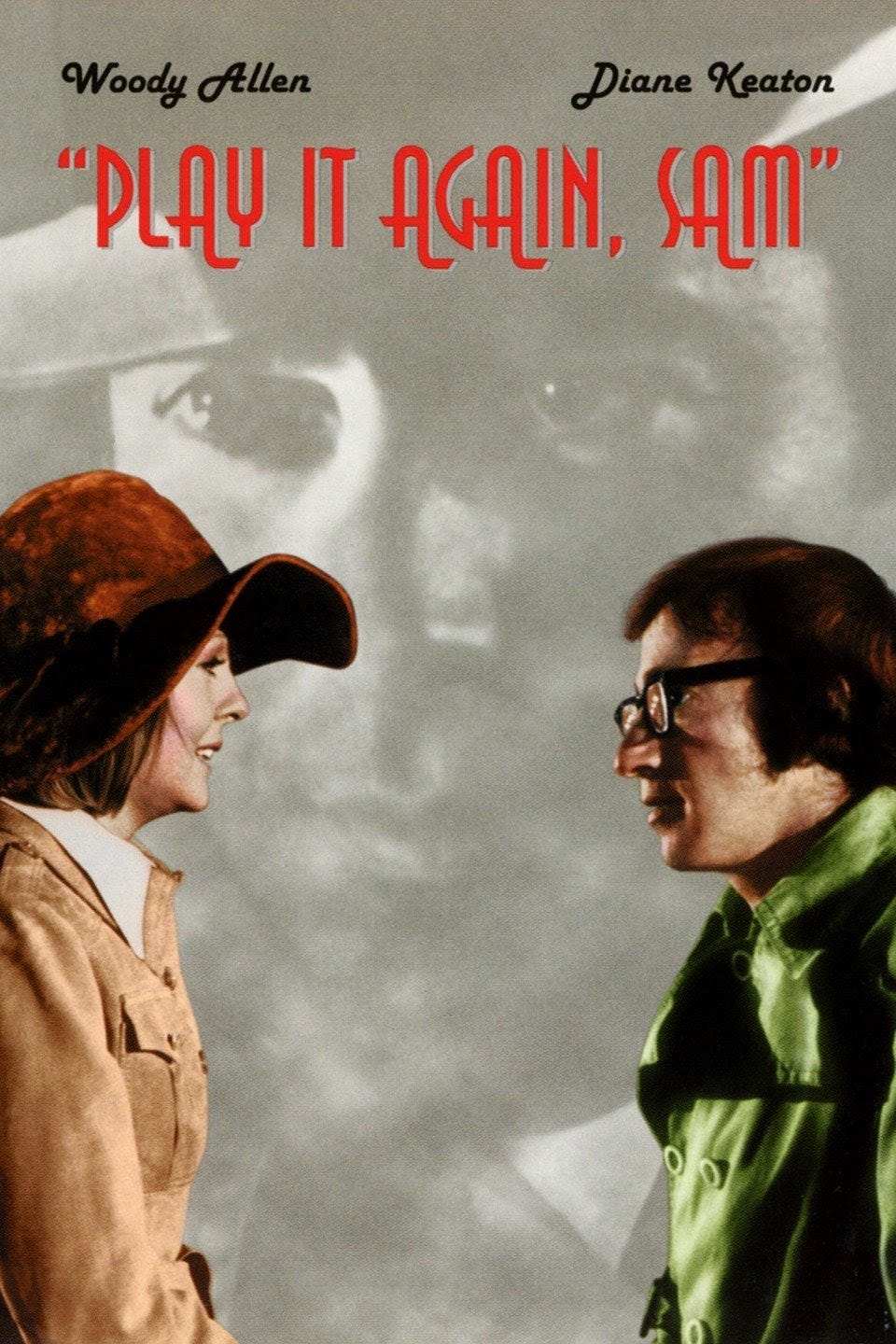Play It Again, Sam (1972) Film Review | Classic of the Week
Starring Woody Allen & Diane Keaton
Perhaps the best way to watch Woody Allen’s romantic existential comedy, “Play It Again, Sam” (1976) for the first time is to watch “Casablanca” (1942) first. That's on the one hand.
On the other hand, it doesn't seem to quite matter which one you see first. If you watch the 1942 “Casablanca” classic first, then when you watch Woody Allen’s boneheaded cynic character get into situations in “Play It Again, Sam,” you'll understand the references. Likewise, if you watch “Play It Again, Sam” first, when you watch “Casablanca,” you'll understand the references. Yes, the connection between the two movies is that much. Yet, they're nothing like each other.
Michael Curtiz’s Casablanca, which stars Humphrey Bogart and Ingrid Bergman, is a wartime romance set in North Africa, that has since become one of the greatest American films from the golden age.
“Play It Again Sam,” however, is a much darker and philosophical reflection of what American film metamorphosed into after the golden era. In 1972, five years before he made his Annie Hall magnum opus, a 37-year-old Woody Allen played Allan, a neurotic and depressed recently-divorced writer who has a disturbing obsession with Humphrey Bogart and his 1942 movie, Casablanca. Not only did this character embody the same persona that Woody Allen gave his creations later on in his movies, but that might have even been the reason Woody was in it.
The movie depicts the relationship of a later generation and the modern world (of then) with Hollywood’s ‘timeless’ classics like “Casablanca.” It also depicts what the modern romance pool was and was turning into. At least what was modern in ’72.
Allan, like many of Woody Allen’s later characters, was living in 1972 but it wasn't in the real world. The only world that exists for a character like Allan is the one that concerns him. He's got no cause, no dreams, and even no love. Just running around like that, on vibes. He needs to get a date, he needs to get laid, and that's about all that matters in his outrageously myopic worldview.
Allan being a little man with a lot of self-esteem issues meant that compared to the macho man he admired, Humphrey Bogart, he was just an undesirable insignificant man who doesn't have anything that would appeal to most women. The fact that one woman could love him before, though, told us from the beginning that his case wasn't hopeless after all.
For Allan, life was like “Casablanca” or any Humphrey Bogart movie for that matter. The problem was that he wasn't Bogie, and he didn't have anything Bogie had. Or, so he thought. Through the idolization of the Bogart character, Allan now had a role model and a guardian angel that could teach him the ways of charm. With the right preparation, he was ready to make a connection, and when the time came, he grabbed the opportunity and made his move. He lucked out. But his Humphrey Bogart moment came with its sacrifice and he soon had a cause he would need to give up the quest for love for. All he needed to ask was, “what would Bogie do?”
“Play It Again, Sam” captures more than just the neurotic persona that later became the chief characteristic of a Woody Allen creation. It captures the struggle of the American going through a midlife crisis in a modern society that’s moving faster than it needed to be.
Watch “Play It Again, Sam (1972)” on fshareTV.




